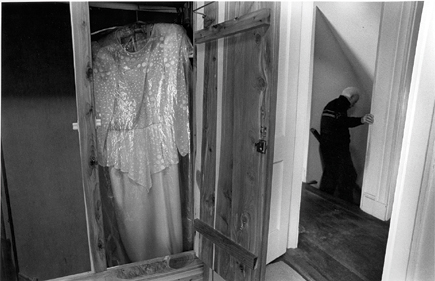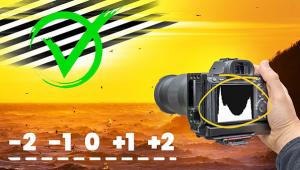Eugene Richards; Personal Documents Of Our World Page 2
"Cops don't trust journalists and they hit the locks on the doors
so I couldn't get out of the car," he says. After some harassment
he recalls how he walked in on a policeman, expressionless as he phoned in his
report of a shooting, the body lying on the floor in a pool of blood. Richards
started detailing things like the cigarette still burning in the victim's
hand. He must have known the person or he would have thrown away the cigarette,
he thought. "You start putting things together and a picture emerges and
then it starts to bother you more when you realize the age of the person and
that an hour before we got here he was alive.
"I had covered conflicts before and a lot of photographers can chase violence
but I knew I couldn't. I get into a kind of weird daze and feel that I
am less professional. My mind wanders unless I am personal with my subject."
Richards' photographs are mostly documentary, dealing with social issues,
while others are more passionate. He will tell you that the journalistic experience
comes first and in the end it is an odd process because the photographer's
job is to go out and attempt to tell the story. After he takes the shots he
steps back and soon the story disappears and becomes memory.
Some are sad stories. Among the most poignant are those taken of his own family.
Richards photographs his mother's 50th anniversary dress hanging in an
open cedar closet. The scene tells us she is no longer there. In another frame,
his father sleeps on an old sofa surrounded by boxes waiting to carry his belongings
from his home. Richards packed the boxes and photographed the cheerless day.
 |
|
|
His images have caught the attention of the world, capturing human emotion
and teaching us we don't have to experience a particular situation for
it to awaken passion within us.
I ask Richards, so can a photograph change the world? "A few have been
major in dialog about human situations, but change it--no. It's asking
too much from this complex world," he says, "but we hope that when
photographs come from the heart people can relate to them.
"At a recent lecture I showed a video of how war is a personal matter
for all of us. At the end a young woman in the military thanked me. `It
speaks to what I'm feeling,' she said.
"That's the best you can do," Richards says, "just to
leave an impression. You do find a constituency, I guess."
When students asked Richards at a lecture how he approaches people he answered,
"First, tone yourself down. Don't go raging with a bunch of opinions
and questions! Be open--be respectful--like taking your shoes off
when you go to somebody's house. Whether you like it or not, change out
of that short skirt--wear a long dress if that's the culture you're
going into--take the earrings out of your nose. Don't put up these
barriers!
"It's a process of getting to know people," he says. "That's
what photography is to me. It's about paying attention, not screwing up
and blowing a great opportunity. I take that very badly--we've all
done it."
I asked Richards if he had ever stopped photographing and he replied, "I've
thought seriously about quitting but the only time I quit was after 9/11. I
saw the buildings fall while working in a psychiatric ward in Budapest. They
made me leave the hospital because I was upsetting the patients. I got home
in four days from Europe.
"I could not cover any other assignments or even go down to look across
the river from where I live in Brooklyn. I was expecting something else to happen.
I had a young son and I knew right away that the world as we knew it was changing
dramatically.
"My wife Janine convinced me that I had to go and photograph there. I
needed to get my head together--I was coming apart emotionally. We got
on the subway together and I went back to work--like I was on automatic
pilot. Janine and I documented the tragedy in our book Stepping Through the
Ashes.
"Since that time it has been getting harder. I could never do war photography.
When everybody else ran, I would walk. I guess I should write a book about how
you discover you're not something.
"I know it is my job. But then, I do question myself. Why do it? There
must be a reason."
Eugene Richards
Eugene Richards was born in Dorchester, Massachusetts, in 1944. A graduate of
Northeastern University with a degree in English and Journalism, he studied
with Minor White at M.I.T. In '81 he became a member of Magnum and worked
as a free-lance photographer for numerous magazines, including Life, Time, Newsweek,
and Esquire.
His first book, Dorchester Days, was followed by Exploding into Life, published
in '86, the story of his first wife's losing battle with breast
cancer.
Cocaine True, Cocaine Blue published in '94 won the Krasna-Krausz Book
Award for Photography, followed by Stepping through the Ashes, a tribute to
those who lost their lives on September 11, 2001. The Fat Baby, published by
Phaidon, is his most recent book.
Awards include a Guggenheim Fellowship, the W. Eugene Smith Grant in Humanistic
Photography, and the Robert F. Kennedy Journalism Award for Lifetime Achievement.
Richards has also written, photographed, and directed several short documentary
films, one on a Nebraska nursing home, another on a crack infested neighborhood
in Philadelphia.
- Log in or register to post comments

































